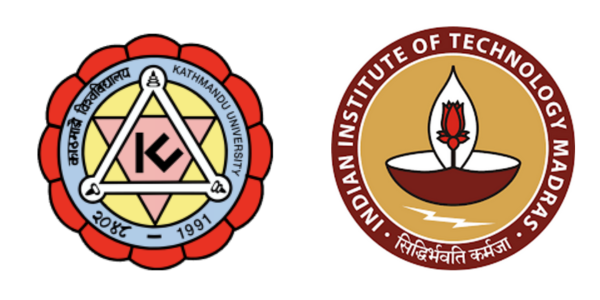Kathmandu University
Kathmandu University (KU) is an autonomous, not-for-profit, self-funding public institution established by an Act of Parliament in December 1991. It is an institution of higher learning dedicated to maintaining the standard of academic excellence in various classical and professional disciplines. The vision of the university is “to become a world-class university devoted to bringing knowledge and technology to the service of mankind”. The University operates through seven Schools: (i) School of Arts, (ii) School of Education, (iii) School of Engineering, (iv) School of Law, (v) School of Management, (vi) School of Medical Sciences and (vii) School of Science where total student count is more than 18,000. KU runs academic programs most of which are credited for being introduced for the first time in the country. At present, the University offers more than 140 long-term and short-term academic programs and courses from intermediate to Ph.D. KU has 62 Professors, 76 Associate Professors, and 167 Assistant Professor within its academic system.
The university houses advanced research laboratories as Turbine testing lab, High voltage lab, Energy Lab, Renewable and Sustainable Energy lab, and Green Hydrogen lab facilities within its premise. As the world and South Asia region moves towards carbon neutrality and a low carbon economy, there is a need for specialized human resources who have state-of-art knowledge and competence to drive and lead the energy transitions. Thus, to address the needs and gaps at both the national and regional level, KU envisions offering the joint degree graduate program in “Energy Systems.”
Indian Institute of Technology Madras
Formally inaugurated in 1959, the Indian Institute of Technology Madras (IIT Madras), is one among the foremost institutes of national importance in higher technological education, basic and applied research in India. The institute is internationally renowned for the quality and diversity of its academics and research in various fields of science, technology, humanities, and management which is nurtured through various programmes run by its 16 departments and through sponsored programmes funded by national organizations and industry. IIT Madras has a rich culture of deep research, technology development, and entrepreneurship, which have been developed over the decades without compromise on the teaching/learning of foundational science and engineering.
Faculty and students are equipped with the best possible facilities to take on the most challenging research problems. The institute has advanced research centres in various disciplines of engineering and pure sciences, with nearly 100+ excellent laboratories organized in a unique pattern of functioning. It also has more than 37 "Centres of excellence" and India's first university-based research park - "IITM Research park", to provide state-of-the-art research facilities to students. IIT Madras also encourages research in inter disciplinary areas which has resulted in cutting-edge research, providing solutions in areas of high priority.
IIT Madras is a residential institute with a self-contained campus. There are 642 faculty members, nearly 10,000 students and 677 administrative & supporting staff. 18% of the student population comprises women. The sylvan estate spans 250 hectares of wooded land located right in the heart of the bustling metropolis that is Chennai.
